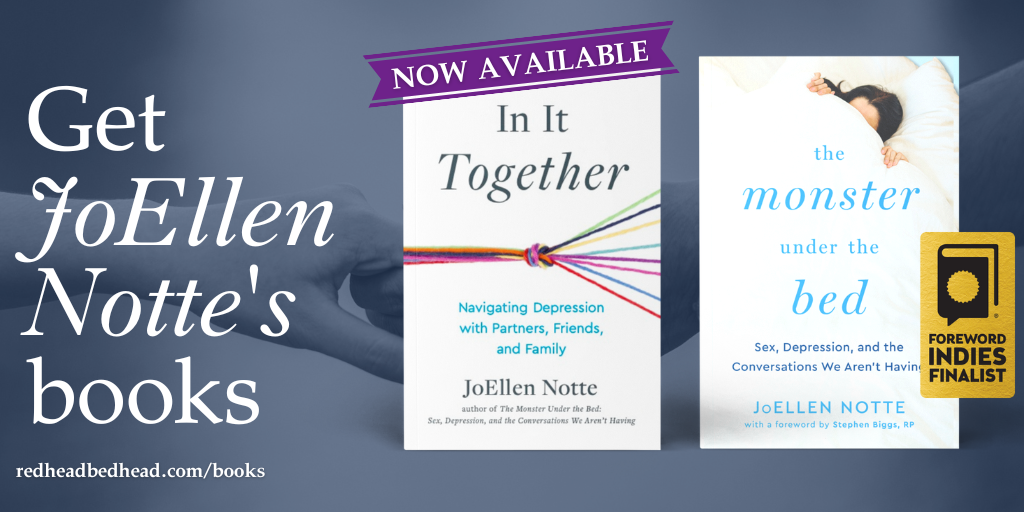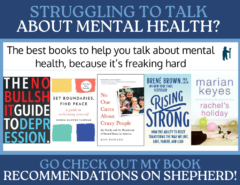I am a writer, a writer writes. In my case however, I am also someone with a history of depression, someone with a diagnosis of Hashimoto’s disease, and someone who once spent 3 years living in an apartment with a serious mold problem. I have faced (and still do face) extended periods where my brain isn’t onboard for the whole “I am a writer” thing. Times when I can’t bring myself to pick up my computer at all because, depression, times when I could stare at my computer for hours and not form words because, brain fog, and times when I can’t maintain linear thought and/or focus because… shit, I don’t know, all of it? As a result of this I have developed some strategies for writing when my brain just can’t.
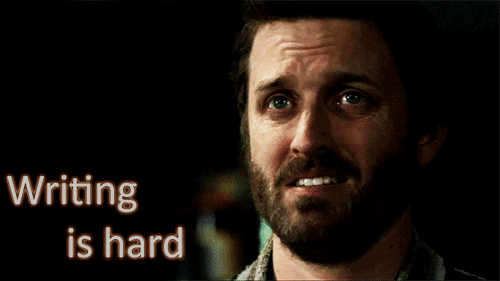
Funnily enough, in the middle of writing this post I ran smack into one of those times. There was some confusion around refilling the prescription for a medication that I’ve been taking for a couple of months with an eye towards improving my Hashimoto’s symptoms and it resulted in me unexpectedly going off it cold turkey and thus feeling like crap. After not touching this post for 5 days, I finally employed one of the most common recommendations for focusing on writing work when things get rough: I headed out to a coffee shop. While it worked this time, it did make me even more aware than ever that there are times when this oft-suggested strategy is not accessible. Last year, for example, I fell into a depressive episode so intense my mother eventually used Amazon to send me groceries because I couldn’t bring myself to leave the house. So, what does one do then? Here are my 5 favorite strategies for forging ahead (as much as possible) when my brain doesn’t want to.
JoEllen’s 5 Tips For Writing When Your Brain Doesn’t Want To
1. Make Lists
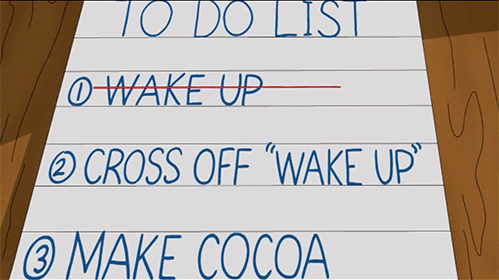 There is one thing I find invaluable in keeping me organized, helping me stay motivated, and generally running my life: legal pads. Seriously, I have them all over my apartment and I use them daily for the lists that help me function.
There is one thing I find invaluable in keeping me organized, helping me stay motivated, and generally running my life: legal pads. Seriously, I have them all over my apartment and I use them daily for the lists that help me function.
I keep a master to-do list going for each month and then make a smaller one each night for the next day. This has helped me to get focused and no become overwhelmed- instead of feeling like I have SO MUCH to do and I’m doing NOTHING I can see exactly what needs doing and map out a plan. Additionally, I can sub things in and out. Does today’s list say I’m starting a post but I don’t want to? As long as I have some time before the post deadline, I can skip it today and do another project (apply edits to chapter 7, maybe?) instead.
The lists are helpful because they stop me from just staring at my computer thinking “DO WORK!!” and give me a sense of accomplishment when I mark things off them. They give me things to do that actually contribute to my overall goals instead of telling me to “Just write! Write anything at all! Just do words!” (which I have always found to be a not-at-all-helpful piece of advice offered to writers) Additionally, they sometimes remind me of the necessary tasks I can get done when actually creating new content isn’t happening.
2. Break it Down
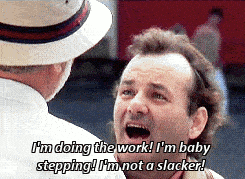 I used to resist outlining things before I wrote them, then I found myself stuck — no forward momentum at all– while working on my book. Last fall I recruited the help of an editor who asked me to outline some chapters and my first instinct was to tell her I didn’t do that but I decided to try it because, well, what I had ben doing wasn’t working. It was a game changer. Instead of just vaguely trying to write anything I had a clear path– beginning, middle, and end– and just needed to connect them. For me it’s a bit like breaking a huge writing project into baby steps.
I used to resist outlining things before I wrote them, then I found myself stuck — no forward momentum at all– while working on my book. Last fall I recruited the help of an editor who asked me to outline some chapters and my first instinct was to tell her I didn’t do that but I decided to try it because, well, what I had ben doing wasn’t working. It was a game changer. Instead of just vaguely trying to write anything I had a clear path– beginning, middle, and end– and just needed to connect them. For me it’s a bit like breaking a huge writing project into baby steps.
Also, going back to the lists: I keep lists going for individual projects where they can be broken down into manageable chunks. Here’s what a to-do list for getting a post written might look like:
- Write intro and conclusion
- Make graphics
- Set up SEO stuff
- Insert images
So now, even when my brain doesn’t want to write the content I can get stuff done.
Lately when I get my chapters back from my editor I first apply the little ones (punctuation, grammar) then I make a list of the changes I need to make so I can see how much work I have to do. This has taken me from feeling like “edit the chapter” was my task to seeing that I could, each day, do small bits that eventually added up to an edited chapter.
3. Let Go of Linear Thinking (or just do the work you want to)
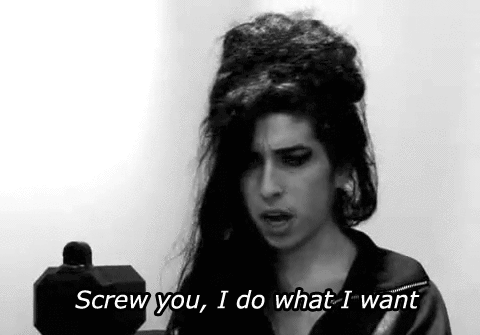 I have found insisting I work through my to-do list in a specific order or even insisting that I write things in order (you know, “start at the beginning, then write the middle, then wrap it up at the end”) can easily lead to NOTHING getting done. Now I follow my brain to the work it can handle at any given moment. Like I said under Tip #1, I’ll switch items around on to-do lists and I’ll even change where I’m working in any given project. I even did it while writing this post– I started with tip #4 because I got excited about writing that one. Bouncing around to different projects (or different parts of projects) lets me actually get things done without feeling like I’m pulling teeth.
I have found insisting I work through my to-do list in a specific order or even insisting that I write things in order (you know, “start at the beginning, then write the middle, then wrap it up at the end”) can easily lead to NOTHING getting done. Now I follow my brain to the work it can handle at any given moment. Like I said under Tip #1, I’ll switch items around on to-do lists and I’ll even change where I’m working in any given project. I even did it while writing this post– I started with tip #4 because I got excited about writing that one. Bouncing around to different projects (or different parts of projects) lets me actually get things done without feeling like I’m pulling teeth.
4. Set Micro-Goals
 I discovered this one during my 2017 depressive episode from hell and it’s a game-changer. For the entirety of summer 2017 I could not get my head around writing, my brain refused. All I wanted to do was lie on my couch, consume snack foods, and marathon HGTV programming. Then I would be wracked with guilt over the work I wasn’t doing or stressed out over impending deadlines. So, one day I decided to see if I could both hibernate on my couch and get some work done. I put on a show (I’m going to guess Property Brothers please don’t judge me) and every time an episode ended I picked up my computer with the goal of writing 25 words and then going back to the TV. As my posts are typically over 1,000 words this goal felt a little silly but I knew that 25 words was still content I didn’t have before. So I would write 25 words which frequently ended up being 50-100 words because train of thought and all. I got several posts done this way during a time when the idea of writing an entire post was just too much.
I discovered this one during my 2017 depressive episode from hell and it’s a game-changer. For the entirety of summer 2017 I could not get my head around writing, my brain refused. All I wanted to do was lie on my couch, consume snack foods, and marathon HGTV programming. Then I would be wracked with guilt over the work I wasn’t doing or stressed out over impending deadlines. So, one day I decided to see if I could both hibernate on my couch and get some work done. I put on a show (I’m going to guess Property Brothers please don’t judge me) and every time an episode ended I picked up my computer with the goal of writing 25 words and then going back to the TV. As my posts are typically over 1,000 words this goal felt a little silly but I knew that 25 words was still content I didn’t have before. So I would write 25 words which frequently ended up being 50-100 words because train of thought and all. I got several posts done this way during a time when the idea of writing an entire post was just too much.
5. Don’t Write (And also, ACTUALLY don’t write)
Recently an employer asked me to write something for their website and even sent me to an example post so I could see what they were going for. When I looked at their example everything came to a grinding halt– it was a 15 page piece and I was completely overwhelmed thinking about how I would write something that large on this topic. In order to stop my panicking, before I even attempted to write, I copied their example article into a document. I removed the pictures and cleared their formatting. Lo and behold, it was only 1300 words of text. That’s a typical blog post for me. Suddenly it felt much more doable. Did I spend a bunch of time doing something that wasn’t writing? Yes. Did it make me feel ready to do the writing? Hell yes! Don’t be afraid to take some time to do stuff that makes getting to your end goal less daunting.
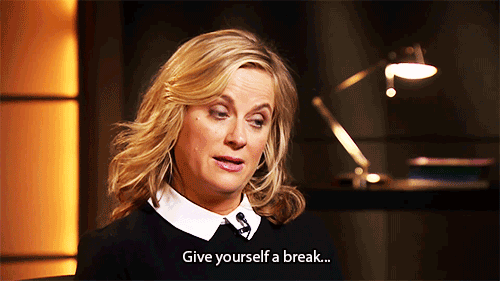 So, that was some writing-related “not writing” but after spending the bulk of 2014-2017 caught in a terribly unpleasant “I should be writing…. I’m not writing…I hate myself for not writing…I should be writing” cycle I have to admit that sometimes pushing for productivity is a bit like trying to eat around a craving. You know that thing where you want chocolate cake but feel like you shouldn’t eat that so you eat an apple, then some carrots, then some hummus, then whatever else and in the end you’ve consumed more calories than you would have if you’d eaten the cake that you thought was “bad” (stop doing this, food is not evil) and you are completely unsatisfied? Sometimes trying to force yourself to write when the brain is totally not into it ends up like that. You still want to rest and not think and all that has come out of trying to force work was an unpleasant day where nothing got done anyway. I know it’s not always possible (deadlines and earning a living are real) but sometimes consider stepping away from the computer even just for a couple of hours. You may find you come back a bit more inspired and ready to work once you’ve scratched the “please let me not do this” itch.
So, that was some writing-related “not writing” but after spending the bulk of 2014-2017 caught in a terribly unpleasant “I should be writing…. I’m not writing…I hate myself for not writing…I should be writing” cycle I have to admit that sometimes pushing for productivity is a bit like trying to eat around a craving. You know that thing where you want chocolate cake but feel like you shouldn’t eat that so you eat an apple, then some carrots, then some hummus, then whatever else and in the end you’ve consumed more calories than you would have if you’d eaten the cake that you thought was “bad” (stop doing this, food is not evil) and you are completely unsatisfied? Sometimes trying to force yourself to write when the brain is totally not into it ends up like that. You still want to rest and not think and all that has come out of trying to force work was an unpleasant day where nothing got done anyway. I know it’s not always possible (deadlines and earning a living are real) but sometimes consider stepping away from the computer even just for a couple of hours. You may find you come back a bit more inspired and ready to work once you’ve scratched the “please let me not do this” itch.
There you have it folks. While productivity certainly doesn’t determine our value as people, I know how hard it is to not get stuff done when you REALLY want to. Hopefully you’ll find these tips helpful!
